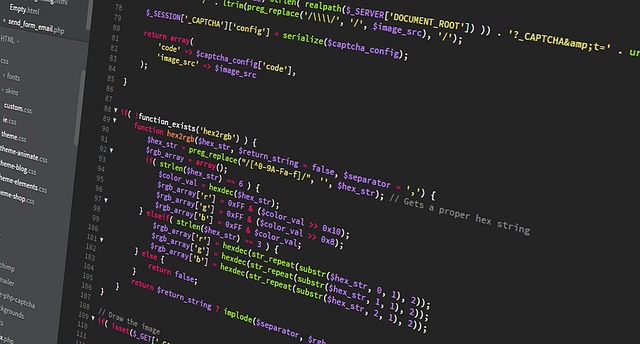Is the music industry evolving as fast the technology that supports it? How are notable software companies shaping the future of music streaming? What changes are these tech leaders introducing to the music space? These questions delve into the heart of the revolution happening within the music industry, fuelled by groundbreaking advancements in software development and digital streaming.
According to research by Nielsen Music, Americans streamed 1.15 trillion songs in 2019, demonstrating the incredible demand for this service. However, there exists a significant problem; an antiquated royalty distribution system that hinders artists from receiving fair compensation for their work. This is supported by a study by Berklee College of Music, which found that 20-50% of music payments do not reach their rightful owners. This inequity necessitates transformative proposals in the USA, focusing on evolving the software infrastructure to ensure comprehensive trackability and equitable royalty distribution.
In this article, you will learn about revolutionary software development practices currently redefining the music industry. You will gain insight into how global tech giants are leveraging advanced technology to resolve issues and enhance the music streaming experience for listeners and creators alike. This journey will take you deep into the algorithmic world of personalized playlists, intuitive recommendation systems, and seamless multi-platform integration.
We will then delve into the various innovative solutions that these companies are developing to address the current limitations in the music streaming industry. You’ll also discover the potential future of music streaming software development and its likely impact on the music industry as a whole.

Definitions and Meanings Behind Software Development for Music Streaming
Software Development refers to the process of creating, designing, programming, documenting, testing, and maintaining applications, frameworks, or components.
Music Streaming is a way to deliver sound including songs without requiring you to download files. In simpler terms, when you stream a song, you’re listening to music over the internet, rather than having the physical or digital copy of it.
Music Streaming Companies are businesses that provide platforms where users can stream music remotely, often for a monthly fee. They are now revolutionizing the music industry by offering unlimited access to millions of songs and playlists in a virtual library.
Breaking Sound Barriers: The Role of Software Development in Reshaping the Music Streaming Landscape
The Disruptive Role of Software Development in the Music Streaming Industry
In recent years, software development has played a profound role in revolutionizing how people listen to music. This transformation is largely driven by the need for convenience and consumers’ demand for an instant and diverse music collection. Pioneers in this field created innovative software solutions that have altered the landscape of music streaming beyond recognition, cutting through the traditional album and CD purchase model and replacing it with a more current and robust system.
These software creations from several tech companies worldwide allow music fans to enjoy their favorite tunes and discover new music genres, artists, and albums at their fingertips. This digital shift in music streaming not only benefits consumers but also provides compensative revenue streams for artists and music labels, encouraging more creativity and diversity in the industry.
The Titans of Music Streaming Innovation
Among the companies leading this change, Spotify, Apple Music, and Pandora have pushed the envelope in software development for music streaming. Their groundbreaking platforms, driven by complex and innovative software solutions, have become household names, profoundly altering how we consume music.
- Spotify offers a catalogue of over 70 million songs, and its personalized algorithm introduces listeners to new music tailored to their tastes.
- Apple Music, with its impressive user interface, integrates seamlessly with other Apple devices, making music streaming a breeze for Apple users.
- Pandora pioneered the ‘Music Genome Project,’ a unique algorithm that creates customized radio stations based on listeners’ preferred music traits.
By continually enhancing their software, these pioneers reaffirm their position in the industry and further strengthen their user base.
Innovation in the music streaming industry is not showing signs of slowing down. New entrants like Tidal and Deezer are challenging the status quo with high-definition audio quality and unique features. Whether it’s improving recommendation systems, enhancing user interfaces, or providing superior audio quality, the software development process continues to be the backbone of the industry’s continual evolution. This ongoing progress promises a future where music streaming is more personal, seamless, and immersive, courtesy of the tireless endeavours of software developers worldwide.
Harmony in Code: How Software Development Companies Are Defining the Future of Music Streaming
Are we on the Brink of a Musical Renaissance?
In a world where nearly all aspects of our lives have been digitized, how is music consumption different? Consumers increasingly switch from physical music formats and radio broadcasts to music streaming services, bringing about critical changes in the music sector. This shift isn’t just about music suddenly appearing out of thin air. Behind these streaming platforms lies an intricate and refined web of software development that is composing a new era of music distribution and consumption. This new form of listening experience is enabled by developers who meticulously code the functions and features that make music streaming possible. These changes have allowed artists to reach a global audience, tailored to their preferences, in real-time. Notably though, this digital revolution also raises an array of concerns, among them being fair artist remuneration and user data privacy.
The High Score: Dissecting the Glitches in the System
With an increasingly digital audience and the surge of streaming platforms, striking the right chord when it comes to artist remuneration has been a significant challenge. Sweeping digitization has altered the very fabric of the music industry’s revenue model. The traditional sales-based model has transitioned into a streaming-based one, where artists often receive a fraction of a cent per stream. The emphasis on a ‘hit-driven’ business intensifies, leaving emerging artists struggling in the shadows of mainstream success. Moreover, the collection and use of user data by streaming platforms opens a new debate around privacy rights and digital security for music lovers. Irrespective of the regulatory policies in place, the effectiveness of controlling such practices remains questionable.
Coding the Future: Inspiring New Strains in the Industry
Despite the obstacles mentioned earlier, companies such as Spotify and Soundcloud have emerged as pioneers in giving innovative solutions to these issues while enhancing the music streaming experience. Spotify, for instance, introduced a ‘fan-powered’ royalty system that directly links fans’ listening habits to the royalties paid to artists. This new system aims to ensure a more equitable distribution of royalties among artists of varying degrees of popularity. Soundcloud, on the other hand, invests in developing artist tools and services, providing an open platform for artists to connect and share their music directly with fans, thereby democratizing the music industry. From a data privacy perspective, these companies adhere to general regulatory policies and invest in advanced security measures to ensure user identities and information remain protected. Such innovations not only help address the industry’s prominent issues but also revolutionize the way we engage with music in a digital era.
Beyond the Play Button: Advancements in Software Development Powering Innovative Music Streaming Experiences
A New Tune: The Transformation in Music Streaming
Have you ever wondered how the music industry copes with the constant change in technology and consumers’ ever-evolving needs? The answer lies in software development, a phenomenon that brings about revolutionary changes in various sectors, including music streaming. As digital technology expands, so does the scope of how we access, engage with, and enjoy music. Consumers are now demanding personalized experiences, flexible accessibility, and an impressive array of choices in their interaction with music streaming platforms.
These circumstances have led to a surge in sophisticated innovations aimed at enhancing the user experience while dispelling consumer frustrations and tech limitations. However, these advancements aren’t without drawbacks. Customizable playlists and AI-curated content, although efficient, have generated concerns about copyright and legal issues, not mentioning the erosion of artist royalties. Major platforms are forced to balance customer demands, evolving tech trends, and artists’ rights, presenting significant hurdles in software development for music streaming.
Harmonizing Code and Melodies: Best Practices in the Music Streaming Industry
Despite these challenges, some software development companies have stood out in providing innovative solutions in the music streaming sector. Spotify, for instance, has created a platform that not only provides millions of songs to its users but also offers podcast hosting services, along with a recommendation algorithm that personalizes user experience. Apple Music, on the other hand, has focused on an artist-first approach, ensuring fair compensation and providing platforms for artists to directly engage with fans.
SoundCloud has transformed the game by creating a platform that caters to emerging artists and indie musicians. Their unique uploader feature allows these artists to share their music globally, creating immense potential for new talent. Additionally, Tidal provides lossless audio quality and high-definition music videos, raising the standards for user streaming experience.
These industry leaders demonstrate the potential of software development in enhancing music streaming service quality while addressing the pressing issues in the industry. The continual evolution in technology constantly provides new opportunities for such advancements. As a result, software development and music streaming have become a timely duet, singing a new era of innovation and personalization.
Conclusion
What would our music experience be like without the revolution brought about by software development companies in the music streaming industry? It is astounding to realize the leaps and bounds technology has taken in recent years, reshaping every aspect of the music industry. From personalizing streaming apps to engineering digital platforms that allow independent artists to share their music with the world, these companies have staged an astounding revolution, leading us into an age of digital music consumption unparalleled in history.
You wouldn’t want to miss out on future developments in this exciting field, would you? Keep following our blog to stay informed. We delve deep into the tech world, providing you with insights and latest updates on areas that spark your interest. Be it new music app launches, upgrades, mergers, or acquisitions, our platform focuses on delivering snapshots of the changing digital landscape as it unfolds.
The world is progressing at a rapid pace, and the realm of music streaming is no exception. To stay on top of your game, wait for new releases that we will be discussing with you. There will be fresh music, innovative platforms, hybrid business models, and cutting-edge technology that blend the virtual and real worlds seamlessly. Remember, the future is not set in stone, but shaped by our curiosity, creativity, and appetite for innovation. We extend our warmest invitation to join us on this incredible journey.
F.A.Q.
How is software development influencing the music streaming industry?
A: Software development is influencing the music streaming industry by providing unique and more engaging ways for listeners to enjoy music. Innovations in software are enabling features like personalized playlists, AI recommendations, high-definition sound quality, and advanced searching filters.
Which companies are leading the revolution in the music streaming software development?
A: Companies like Spotify, Apple, Amazon, and YouTube are leading the way in music streaming software development. These companies invest heavily in R&D to provide more innovative features and improved user experiences to their listeners.
What are some examples of innovative features developed for music streaming platforms?
A: Some of the innovative features developed for music streaming platforms include voice-controlled software, social sharing capabilities, AI-based song recommendations, and cross-platform synchronization. These features not only enhance user experience but also provide a more personalized approach to music streaming.
How is Artificial Intelligence (AI) contributing to the development of music streaming software?
A: AI plays a crucial role in the development of music streaming software by powering recommendation systems and customizing listener experiences. Using AI, developers can analyze user patterns and preferences to generate custom playlists and suggest new music, providing a more tailored listening experience.
What is the potential future of music streaming software development?
A: The future of music streaming software development will likely involve more integration of AI technologies, advancement in data analytics, and the introduction of more immersive features like virtual reality concerts. As technology continues to evolve, we can expect more innovation and personalization in the music streaming industry.


